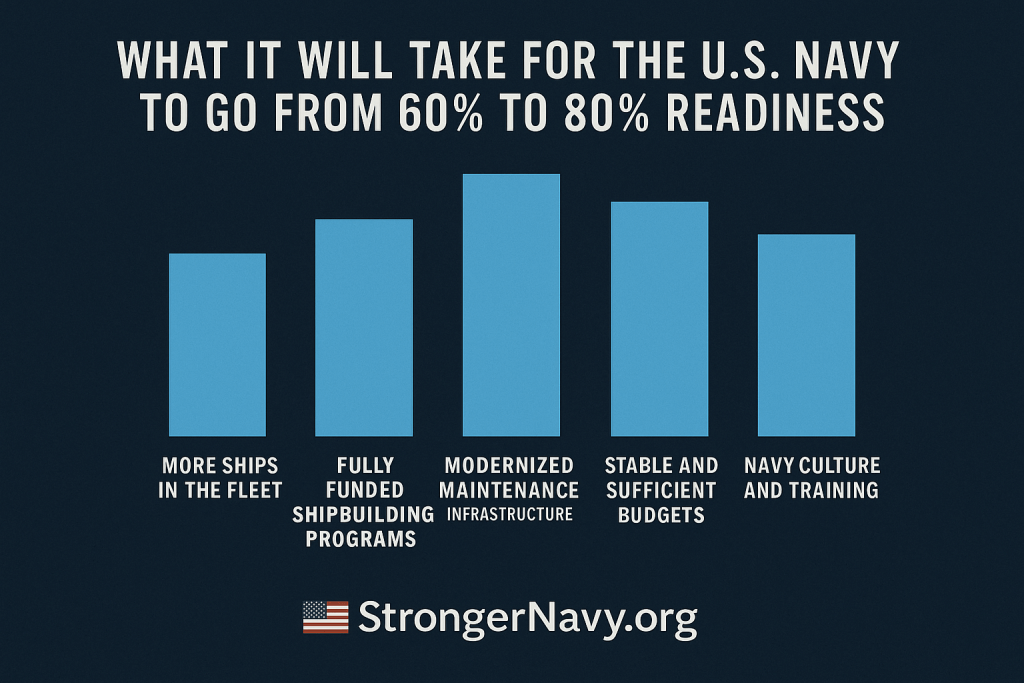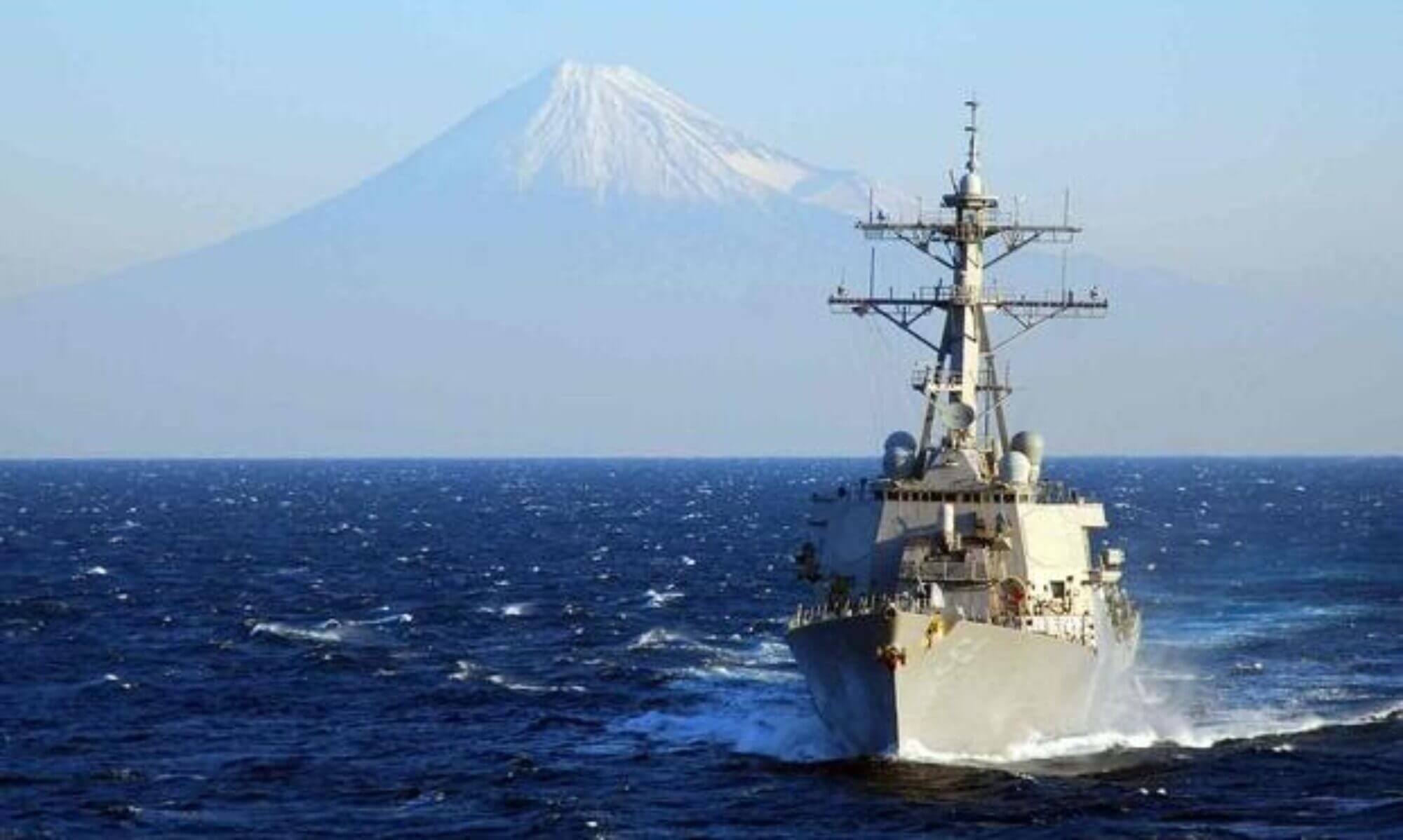

Introduction
If you’ve been following along, you know we’ve been sounding the alarm for some time now—raising concerns not out of fear, but out of duty. At Americans for a Stronger Navy, we don’t profit from defense contracts or feed the industrial complex. We’re here because the facts are in: the Navy is falling short of the readiness our nation demands—and we must do better.
The U.S. Navy is aiming for 80% surge readiness by 2027—but it’s stuck at 60%. That 20% gap could determine whether America deters conflict—or invites one.
Brent Sadler, Senior Fellow for Naval Warfare and Advanced Technology at The Heritage Foundation and author of U.S. Naval Power in the 21st Century: A New Strategy for Facing the Chinese and Russian Threat, put it bluntly:
“It won’t happen until more ships enter the fleet to drive operational tempo down to 30%.”
Top Navy leaders have echoed this urgency. As one Navy official said plainly:
“We must increase our fleet readiness to 80% by 2027 to meet global security demands and deter peer-level threats.”
That’s the heart of the problem—and a major reason we’re sounding the alarm.
From the Indo-Pacific to the U.S. Southern border, the Navy is being stretched dangerously thin. The ships we have are aging, overworked, and under-maintained. Meanwhile, new construction is lagging—leaving sailors to shoulder an impossible burden, and the nation exposed.
At Americans for a Stronger Navy, we don’t advocate fear—we advocate responsibility. We believe war is preventable, but only if America wakes up and acts.
That’s why we launched Charting the Course: Voices That Matter—a 24-part educational series breaking down how we got here, what went wrong, and what must happen next. Our goal is simple: educate the public, connect the dots, and build the support needed to close the readiness gap before it’s too late.
Let’s move beyond slogans. Let’s build understanding, accountability, and strength—before the next crisis comes knocking.

